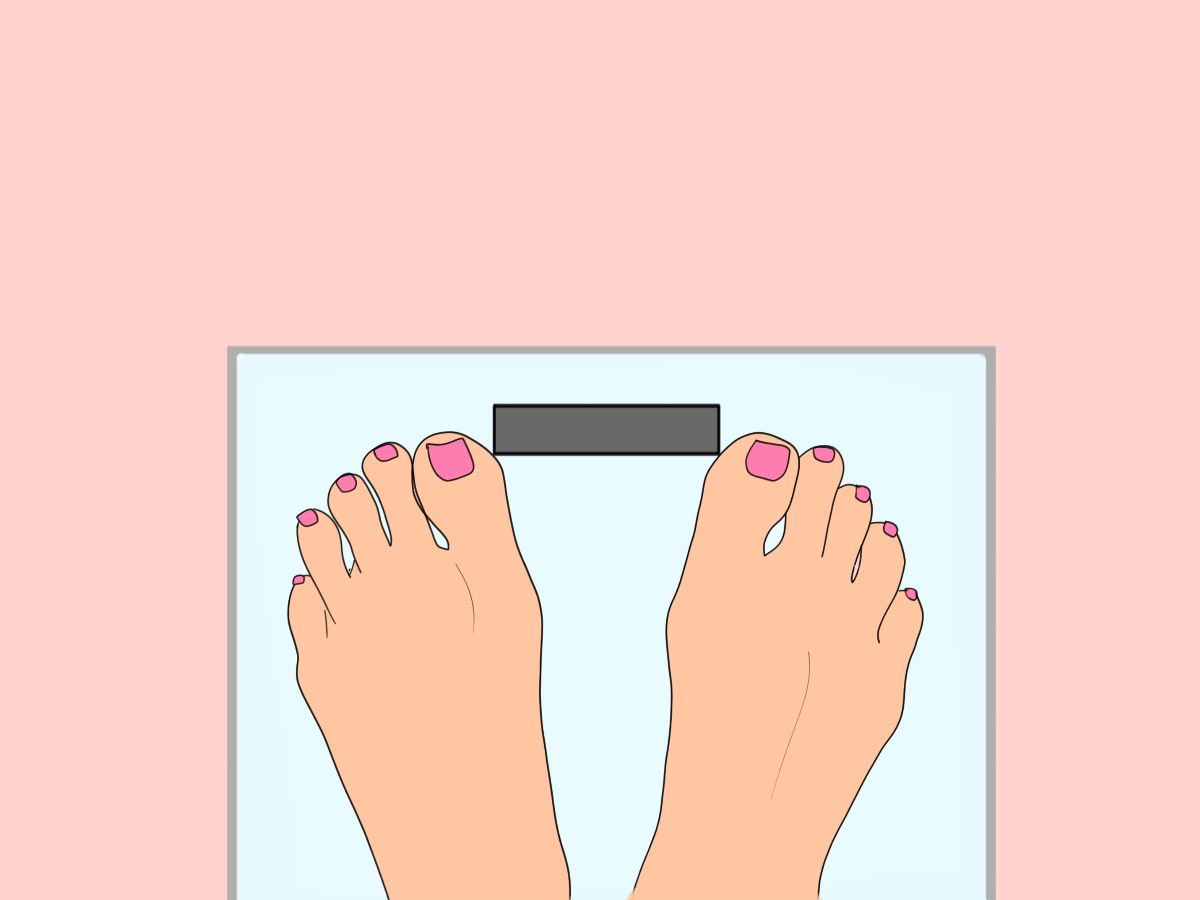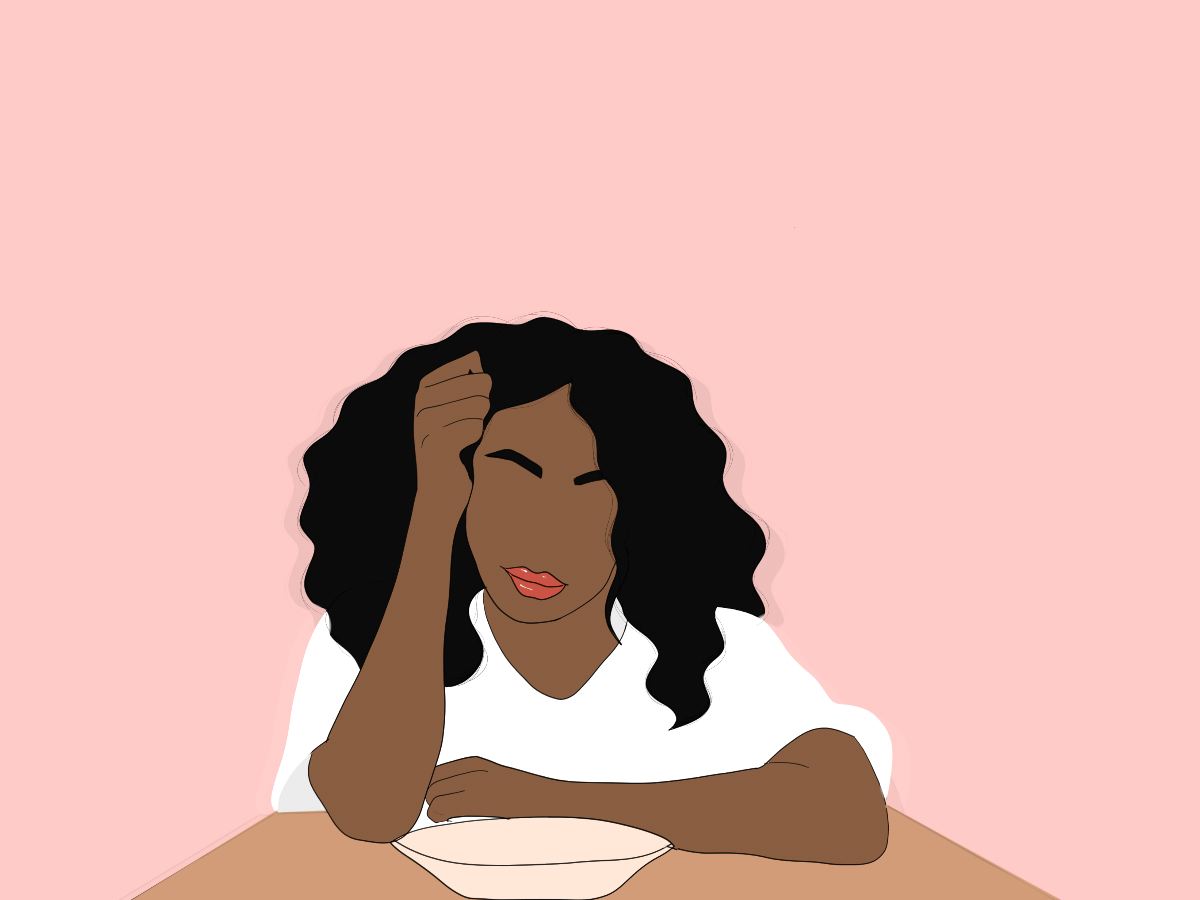Trigger warning: Discussions of eating disorders, mental illness and weight loss. *All names have been changed to protect the identities of the sources.
Fatphobia – people across social media love to deny that it’s real but it’s everywhere
For those who aren’t familiar with the term, it means the fear or hatred of obese people, or people in larger bodies. It’s rooted far deeper than just not wanting to be fat – a lot of thin people are angered by plus-sized people having a platform and being successful. Take Lizzo’s Instagram comment sections, for example – people can’t see past her body size, no matter how many awards she wins.
The extent of weight stigma today is constantly highlighted in the media – we can’t escape it. Despite Jameela Jamil’s best efforts, influencers still think it’s okay to promote unsustainable diet pills and shakes to young audiences. And when celebrities themselves are interviewed, they’re almost always asked the question that people with eating disorders dread reading: “So how do you stay in shape?”.
It can be such a trigger for those who struggle with body image, because it reinforces that appearance is everything. No matter what somebody has achieved, their figure takes centre stage.
With all this considered, it’s hard to deny that fatphobia and eating disorders are linked. People exposed to the hatred of overweight people are likely to fear being in that position, so are willing to go to any length to avoid it. Their self-esteem is more of a priority than their physical health, and it’s like this because of society’s attitudes to weight. Often, being a particular size is the norm, and it’s hard to grow up believing that your body isn’t normal.
I spoke to Emily* about this. She unhealthily dropped from a size 16 to a size 8 on her gap year. She explained, “I thought I was on a ‘fitness journey’, and I didn’t understand that people are just naturally different sizes. I thought I was becoming the thin person I was always meant to be.” It wasn’t until Emily started gaining the weight back that she realised how unhealthy she’d been before.
But today, fatphobia and eating disorders are even more connected than just through the fear of being overweight

In a recent report in The Guardian, experts were accused of denying patients access to eating disorder treatment, because their BMIs weren’t low enough. People in the UK are being refused help because they aren’t in small enough bodies to prove they have the symptoms – fatphobia is becoming institutionalised and legitimised.
Stephanie* shared her experiences of this. “I suffered from BED (Binge Eating Disorder) and got help for it at uni, but when I moved after graduating, my new area screened out eating disorder treatment based on BMI, so I couldn’t get any treatment.”
This is a huge problem for so many reasons. Firstly, it shows the lack of awareness about eating disorder symptoms, even in a professional capacity – weight loss isn’t always a visible sign. Often, anorexia nervosa sufferers will experience severe weight loss, but this isn’t necessarily the case for those with bulimia or binge eating disorder.
MHFA England states that binge eating disorder is more common than anorexia or bulimia, with 3.6% of people displaying symptoms. So, we can’t forget or ignore it – if we only look for severe weight loss, the 3.6% might get left behind.
Secondly, refusing eating disorder treatment based on BMI sends the message that patients need to prove they’re sick. Collecting the courage to ask for help with an ED or any mental illness is hard, and it’s important not to discourage people once they’ve reached this step. Many report not feeling deserving of treatment because others have it worse – and by reacting this way, specialists are agreeing with them. But you don’t need to be in the most extreme phase of an ED to be deserving of help. The thoughts running through your mind still need attention, no matter the size of your body.
Alex* hasn’t received help for unhealthy eating, despite struggling with food for over a decade. She said that despite showing high levels of anxiety when it comes to eating, “working her way up into a fit to get the food out one way or another”, she’s always been told she “just needs to lose the weight” and “control portion sizes”. She feels this is because she’s because she’s over the standard weight; everyone assumes that she wants to lose it, whatever it takes. If somebody in a smaller body displayed this level of food anxiety, an eating disorder would be suggested more quickly. But, instead, Alex has been recommended programmes like Slimming World, which rather than helping, have been “toxic”.
Similarly, despite experiencing disordered eating patterns since the age of ten, nobody noticed Lauren’s* pain. When she dropped large amounts of weight, it was even celebrated by those around her. Agreeing with Alex, she commented, “when you aren’t ‘skinny’, people tend to overlook eating trends that they may notice in someone who is thin”. It wasn’t until recently that Lauren managed to find a nutritionist. They helped her begin the long process of restoring the metabolism that years of dieting and disordered behaviours had damaged.
There is a danger that if these links between fatphobia and eating disorders aren’t investigated in full, nothing will change
Future generations will feel the same as ours, because the responses we get when we open up about sensitive issues inadvertently shapes who we are. Lily* described her mum’s journey, and the impact its has had on her. In the 80s, Lily’s mum suffered from severe bulimia and the ‘treatment’ she received has had a long-term effect. It was only a further trigger – she was prescribed a Weight Watcher’s membership, for example, which promotes caution and calorie counting and for some people is incompatible with learning to love food. Although her mum is thankfully in recovery now, Lily was raised watching her behaviours, so thought it was normal and adopted the same mindset.
Open communication is one of the best ways to combat what we see happening. Communication with one another about our feelings, communication with professionals when we don’t feel we’ve been heard in full. . . talking is the best and easiest way to normalise and rationalise our experiences, and it can help to make a broader change.
If you think you need help with an eating disorder, get in touch with one of the following organisations:
- BEAT
- National Centre for Eating Disorders
- ABC – Anorexia and Bulimia Care
- Men Get Eating Disorders Too
Find more lifestyle articles here >
Written by Faye Minton
Illustrated by Francesca Mariama

